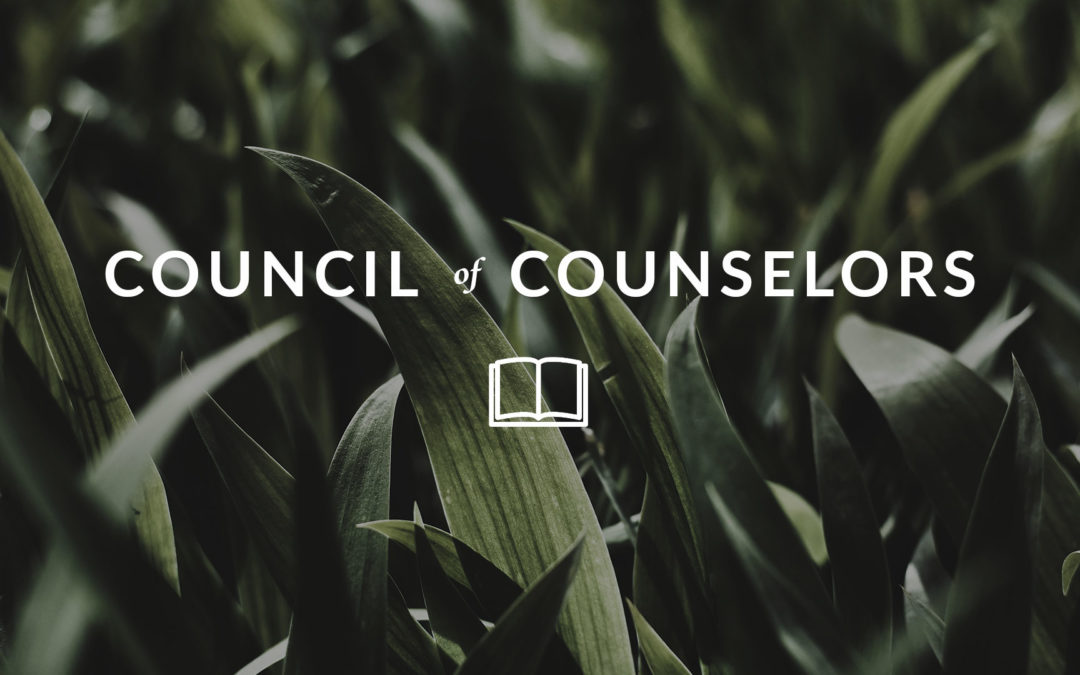This is a weekly post that highlights resources from other counselors that I have found helpful. The counselors may be from the biblical counseling, Christian psychology, integration, or secular counseling traditions. By linking to a post, I am not giving it my full endorsement, I am merely indicating that I believe it made a unique contribution or raised an important subject for consideration.
How to Mortify Sin by Sinclair Ferguson
These are some of the things my friend and I talked about that memorable evening. We did not have an opportunity later to ask each other, “How are you going?” for it was our last conversation. He died some months later. I have often wondered how the months in between went in his life. But the earnest personal and pastoral concern in his question still echoes in my mind. They have a similar effect to the one Charles Simeon said he felt from the eyes of his much-loved portrait of the great Henry Martyn: “Don’t trifle!”
- Session 3 in this series provides a 9 steps methodology for overcoming sin that attempts to “unpack the gospel in slow motion” for mortifying sin.
Help for Parents Who Want to Give Up: 10 Keys to Raising Kids by Ann Voskamp
I wish I had done that. I wish someone had told me that. There’s support groups for moms of preschoolers, but where’s triage for the moms of teenagers? #MOTS The older our kids become, the greater our isolation can become, because while mothers can instagram and commiserate together over the Terrible Twos — but mothers struggling through a stretch of terrible teens can suffer alone.
- Here is a collection of my favorite posts and resources on parenting.
10 Things Sexual Assault Victims Want You to Know by Karen Swallow Prior
“What do you wish people knew/understood about experiencing sexual assault?”
Given the private nature of the question and the public nature of the medium, I anticipated only a handful of responses. I was astonished that dozens and dozens of people responded, whether directly on the thread or in private messages. (I should also note that I know most of the respondents in real life, including many who have been my students.) Their comments altogether filled up 60 pages.
- Here is a seminar to help you understand and begin countering the impact of sexual abuse.
Six Basic Struggles by Ed Welch
Most people would acknowledge at least six basic struggles.
- Anger
- Guilt and regret
- Shame
- Suffering, such as loss, victimization, sickness . . .
- Fear
- Saying “yes” when we should say “no”—this would include everything identified as an addiction
- For another quality resource from CCEF see the “What I’m Reading” section below.
Why We Need a Theology of Trauma by Phil Monroe
We live in a world shaped by violence and trauma. This week that I write 147 Christian Kenyan university students were killed because of their faith. Such horrific forms of violence shock us. But they shouldn’t given that in our own country violence and trauma are everyday occurrences. While some of our local brothers and sisters face actual death, all of our communities are shaped by soul-crushing abuse and family violence. Take the most conservative numbers we have—1:6 males and 1:4 females have experienced sexual assault before age 18—and realize that a large portion of your friends and acquaintances have traumatic experiences.
- Here is a collection of resources on PTSD.
What I’m Reading
 How People Change by Tim Lane and Paul Tripp. What does it take for lasting change to take root in your life? If you’ve ever tried, failed, and wondered why, you need How People Change. This book explains the biblical pattern for change in a clear, practical way you can apply to the challenges of daily life. But change involves more than a biblical formula: you will see how God is at work to make you the person you were created to be. That powerful, loving, redemptive relationship is at the heart of all positive change you experience.
How People Change by Tim Lane and Paul Tripp. What does it take for lasting change to take root in your life? If you’ve ever tried, failed, and wondered why, you need How People Change. This book explains the biblical pattern for change in a clear, practical way you can apply to the challenges of daily life. But change involves more than a biblical formula: you will see how God is at work to make you the person you were created to be. That powerful, loving, redemptive relationship is at the heart of all positive change you experience.
Tweets of the Week
That light bulb moment you had? The whole world didn't have it with you. Teach, speak, lead with the grace & patience you needed yesterday.
— Sharon Hodde Miller (@SHoddeMiller) April 6, 2017
Lying to avoid conflict is still lying. It proves conflict is already there. So much of our misery is in our unwillingness to deal honestly.
— Beth Moore (@BethMooreLPM) April 10, 2017
UNCOMFORTABLE, BUT TRUE:
If you want to do things you’ve never done before, you have to learn from people you’ve never learned from before.
— howertonjosh (@howertonjosh) April 10, 2017
Meaningful Meme

On the Lighter Side
Because, “A joyful heart is good medicine, but a crushed spirit dries up the bones,” Proverbs 17:22.
